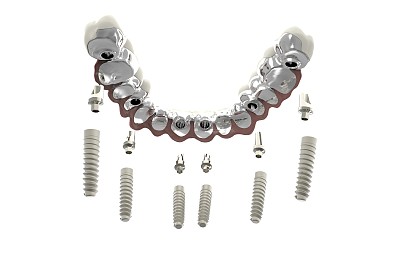Essential Guidelines and Precautions to Ensure Success in Dental Implantation Procedures for Optimal Oral Health
Summary: Dental implantation is a pivotal procedure for restoring oral functionality and aesthetics, but success hinges on adherence to essential guidelines and precautions. This article explores four critical aspects to ensure optimal outcomes in dental implant procedures: patient evaluation and selection, surgical techniques, post-operative care, and ongoing maintenance. By understanding these components thoroughly, individuals can significantly enhance their oral health and longevity of dental implants. Furthermore, by following these best practices, patients can reduce the risk of complications and achieve satisfactory results that meet their functional and aesthetic needs.
1. Comprehensive Patient Evaluation and Selection

Before initiating the dental implant procedure, a thorough patient evaluation is crucial. This involves assessing the patients medical history, current health condition, and dental problems. Factors such as periodontal disease, bone density, and the presence of systemic diseases significantly influence the success of the surgery. Therefore, a detailed consultation with the patient is mandatory.
Moreover, imaging studies like X-rays or CT scans should be conducted to ascertain the jawbones health and available space for implant placement. This helps in planning the surgical approach more effectively and identifies any potential complications early in the process.
Finally, patient expectations must also be addressed during the evaluation phase. Its essential to communicate the limitations and realistic outcomes of dental implants. This transparency helps foster informed consent and aligns patient aspirations with achievable goals.
2. Advanced Surgical Techniques and Protocols
Successful surgical execution is vital for dental implant success. Surgeons should be well-trained in the latest techniques, as advancements in technologies such as guided implantology and three-dimensional printing have streamlined the process. Utilizing these modern methods minimizes surgical trauma and enhances accuracy during placement.
In addition, adhering to sterile techniques during the procedure cannot be overstated. The risk of infection can significantly hinder recovery and implant success, so strict aseptic protocols must be maintained to safeguard the surgical site.
Careful post-surgical monitoring is also an integral part of the surgical approach. Regular follow-ups in the initial weeks post-implantation ensure any discrepancies can be addressed promptly, facilitating overall recovery and integration of the implant into the jawbone.
3. Post-Operative Care and Patient Education
Post-operative care is critical for ensuring the longevity of the dental implant. Patients should be provided with detailed instructions regarding oral hygiene practices and dietary restrictions to minimize complications like infection or implant failure. Engaging patients in their recovery process promotes accountability and trust.
Pain management should also be addressed, as post-surgical discomfort is common. Prescribing appropriate pain relief while advising on typical symptoms that should not escalate can enhance the patients experience during recovery.
Moreover, patients must understand the importance of regular follow-up appointments. Monitoring the implant site and assessing bone integration allows for early detection of potential issues, ensuring timely intervention if necessary.
4. Ongoing Maintenance and Lifelong Monitoring
Once dental implants are secured, ongoing maintenance becomes paramount to their success. Regular dental check-ups should be scheduled at least twice a year to evaluate the integrity of the implant and assess oral health comprehensively.
Patients should also be educated about personalized home care practices, such as the use of soft-bristle toothbrushes and interproximal cleaning devices, which help maintain hygiene around implants. A proper oral care routine decreases plaque accumulation and prevents peri-implantitis, a common complication.
Finally, lifestyle changes may also play a role in the longevity of dental implants. Encouraging patients to refrain from smoking and adopting a balanced diet can contribute positively to oral health and overall implant success.
Summary:
In conclusion, dental implant procedures require a multifaceted approach involving careful patient evaluation, precise surgical techniques, diligent post-operative care, and ongoing maintenance. Adhering to these essential guidelines and precautions can greatly enhance the success of implants, leading to optimal oral health. By taking proactive steps, both practitioners and patients can work together to achieve satisfactory outcomes.
This article is compiled by Vickong Dental and the content is for reference only.



